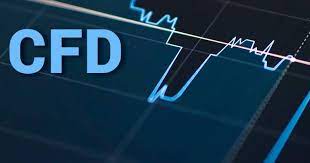CFD trading is a popular form of investment where traders speculate on the direction of prices of underlying assets, such as commodities, indices, and stocks. Contracts for Difference, or CFDs, provide opportunities for traders to profit from the rise or fall of prices without actually owning the underlying asset. However, as with any type of trading, success depends on several factors, and one of the most critical is finding the right CFD broker. In this blog, we’ll talk about the advantages of CFD trading and how the right broker can make all the difference.
Before we dive into the qualities of an excellent CFD Broker IFX , let’s take a look at the benefits of CFD trading. One of the biggest advantages of CFDs is the flexibility they offer. Unlike traditional investing, CFDs do not require a significant investment of capital. They are accessible to a wide range of investors, including those with limited budgets. Additionally, CFDs allow traders to leverage their capital. That means they can increase their exposure to the market, which can magnify profits in a favourable outcome or lead to significant losses in an unfavorable result.
The right CFD broker can help traders maximize the benefits of CFD trading. An ideal CFD broker should offer a wide range of trading tools and research resources, as well as access to a variety of assets. They should also be regulated by governing bodies to ensure compliance with industry trends and provide transparency to traders. Moreover, the best CFD brokers offer trading platforms that are easy to navigate and have top-notch customer service to assist traders in case of any queries.
Low commissions and low spreads are two other essential factors to consider when selecting a CFD broker. Commissions are charges made by brokers for every trade executed, and spreads are the difference between bid and ask prices. Low commissions and spreads allow traders to maximize their profits by keeping trading costs low. A transparent broker will disclose their fee structure and offer competitive rates, enabling traders to make informed and cost-effective decisions.
Account types and minimum deposit requirements should also be considered when choosing a CFD broker. Most reputable brokers offer free demo accounts that allow traders to practice strategies and test trading platforms without using real money. It’s essential to choose a broker that offers account types suited to individual traders’ needs and risk profiles, and the minimum deposit requirements of a broker should be within reach to allow all levels of traders to begin trading on their platform.
Conclusion:
In conclusion, the right CFD broker can make all the difference when it comes to CFD trading. They can help maximize the benefits of CFDs while minimizing risks through access to trading tools, research resources, and a variety of assets, as well as providing low commissions, low spreads, efficient and transparent fee structures, and superior customer service. In selecting the best CFD broker, traders should consider their individual needs and risk tolerance levels, coupled with the brokers’ account type and minimum deposit requirement. By choosing the right CFD broker, traders can unlock the CFD advantage and potentially achieve financial success.



